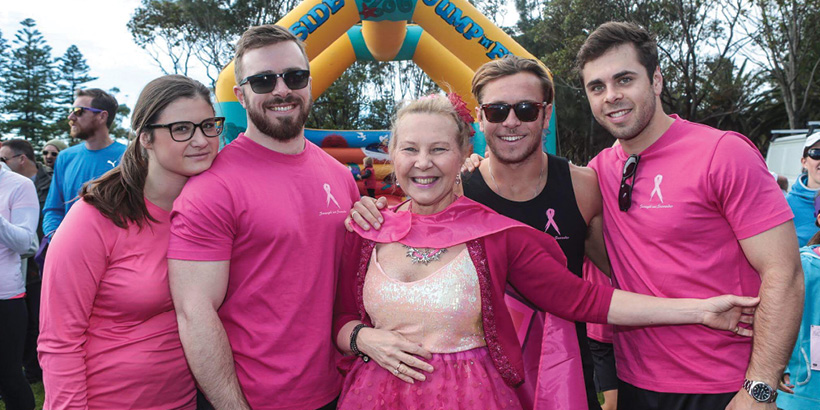
Check your privilege
September 12, 2017Be prepared to listen on RUOK Day
September 14, 2017STUDENT VIEW
Returning to the same hospital where his mother passed away, medical student Gerald Riordan reflects on the care she received and his own emotional journey.
A week after my mum died I went back to the same hospital she passed away in. But this time, I went back as a student trying to complete my final year of med school. I struggled a lot in those first few weeks back (and most of the weeks after that). Part of the reason I struggled was related to the care I was involved in – I sat in on two family conferences and watched on as families were told their loved ones would die. Each time I tried my best not to cry, to avoid embarrassing myself.
But I think the biggest reason I found it difficult was because I was so angry.
I was angry at the hospital itself. I’d heard from my sister-in-law how ED hadn’t told Mum or my family what tests they were running on her. How they hadn’t explained that her potassium was seriously elevated and that’s why they needed to keep taking more blood, which frustrated and upset her. How ED hadn’t called her treating physician when she arrived (even though he knew she was coming in and had asked to be notified), which potentially delayed her admission overnight.
I was angry at the people around me – fellow med students who avoided me and changed the subject when I tried to bring it up. I was angry that for all the talk about mental health, most people were clearly too concerned with their own sense of awkwardness to ask if I was okay.
I was angry at patients, something I am now a little ashamed to admit. Angry at people who came into ED with relatively trivial issues that could easily have been sorted by their GP, or at patients who complained about nurses not paying them enough attention. Obviously now I can see I was being incredibly unfair, but at the time I couldn’t help but blame these people for the shortage of hospital beds and staff, which had potentially hindered my Mum’s care.
I probably saved most of the anger for myself though; it hurt so much to think that I had let Mum down, that when she had needed me most I hadn’t been there. And that because I was so wrapped up in my own sadness, I wasn’t there for the other people that needed me – my younger brother who cried too much, and my older brother who didn’t cry enough.
After a while, some of that anger started to settle down. Part of me didn’t want to let go of the anger though, as if it meant letting go of Mum. But slowly it became a little easier to see the great aspects of her care – how some of the staff had bent hospital protocol so that while she was having a liver biopsy she could hold a necklace my brothers and I had given her. How someone in ED had tracked down some jelly and custard for her, because that was the only food that didn’t make her nauseated.
I also realised how incredibly lucky I was to know some great staff – the registrar who cared for my Mum and stopped me in the hallway to offer a shoulder to cry on. And the rheumatology advanced trainee who spent hours talking with me about our favourite burgers, pizzas and milkshakes when I was feeling particularly crap.
In about my fourth week back I went to the oncology ward for a tutorial. We went into the same room Mum was in. The patient in Mum’s bed was being treated by one of the nurses that had also treated Mum. Seeing this nurse again made me smile, because it reminded me of how Mum had given every nurse on the ward L’Occitane hand cream to thank them for caring for her. And how even though Mum was incredibly sick, her biggest concern was that she’d accidentally got one of the nurse’s names wrong.
I don’t think the nurse recognised me, which was probably lucky, because Mum had a pet name for me which all the nurses knew. And while it’s a cute pet name, I’m glad the nurse didn’t call me Geraldy Bear in front of my supervisor and peers. After all, I’d probably prefer not to be called Dr Geraldy Bear for the rest of my career.
Gerald Riordan is a 6th year medical student at UNSW. His mother, Dr Margaret Gardiner was a well-known GP and inspirational breast cancer advocate.

